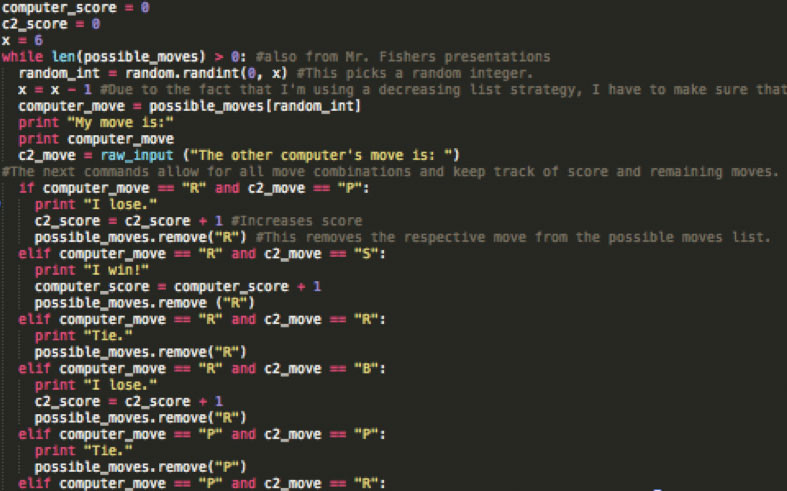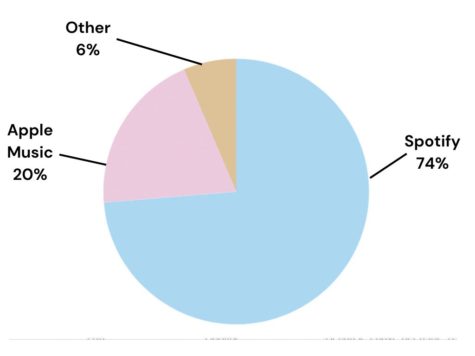Science Spotlight: Culture of Coding
A portion of Python code that plays Rock, Paper, Scissors with the user.
Technology is all around us, in our backpacks, in our pockets, on our wrists, it’s almost impossible to do anything without the use of technology. But every piece of technology is useless without the underlying set of commands – known as code – that tell the technology how to operate.
When the word “coding” is used, what is the first thing that pops into your mind? Emma Swenson ‘18 and Victoria Chekerdjieva ‘18 said “computers,” while Lucas Foster ‘18 described coding as “game design” and Thomas Washington ‘18 said “hacking.”
As a follow-up, a question regarding the necessity of coding was asked and mix answers were given. Swenson stated that coding is “pretty necessary, that’s how all of our technology runs,” which is supported by Foster’s statement: “[coding is] completely important, it’s where everything is going.” Washington took a different stance, saying that coding was “not very necessary” while Chekerdjieva took the happy-medium saying that “if you are going into that profession, [coding] is more important to know”
According to computer science teacher Sean Hickey, “learning computer languages is somewhat analogous to learning a spoken human language.”
The culture surrounding coding has always been one of geeky-ness and nerdy-ness, but Hickey proclaims, “it is kind of a sexy thing to be a coder all of a sudden” for coding is becoming more mainstream and is becoming a part of day-to-day life. Alex Fisher, a computer science and math teacher, states, “I use [coding] a lot for simple things that will help me in my classes.” Fisher goes on, describing one instance where he used coding: “I had to make a random list of students and ran a really quick Python code to do it.” Coding has many applications and most of them are quick and help with simple tasks.
The necessity to be tech savvy has risen over the years as technology has become an integral part of daily function, flooding the global markets with products that many of us don’t understand. Most of this tech is user friendly and doesn’t require much tinkering with, but every now and then, a ping test may be needed or some code may need to be written. For most people, when a situation like this pops up, the gut reaction is to call the Apple Store and get the next available Genius Bar appointment. As Fisher puts it, most people view their computers as “a magic box.” This perception of technology doesn’t have a place in our evolving technological society.
The “magic box” mentality is the very opposite of what Blake’s computer science classes stand for. According to both Hickey and Fisher, the goal of computer science isn’t to make students pro-coders, it is to steer people away from the “magic box” mentality and give them some tech literacy. Being “tech literate” defines a range of people. It is anywhere from knowing a little line of code, to being able to write entire programs, but no matter the profession, there is a profound necessity to know how computers function and how to problem solve like a programmer.










